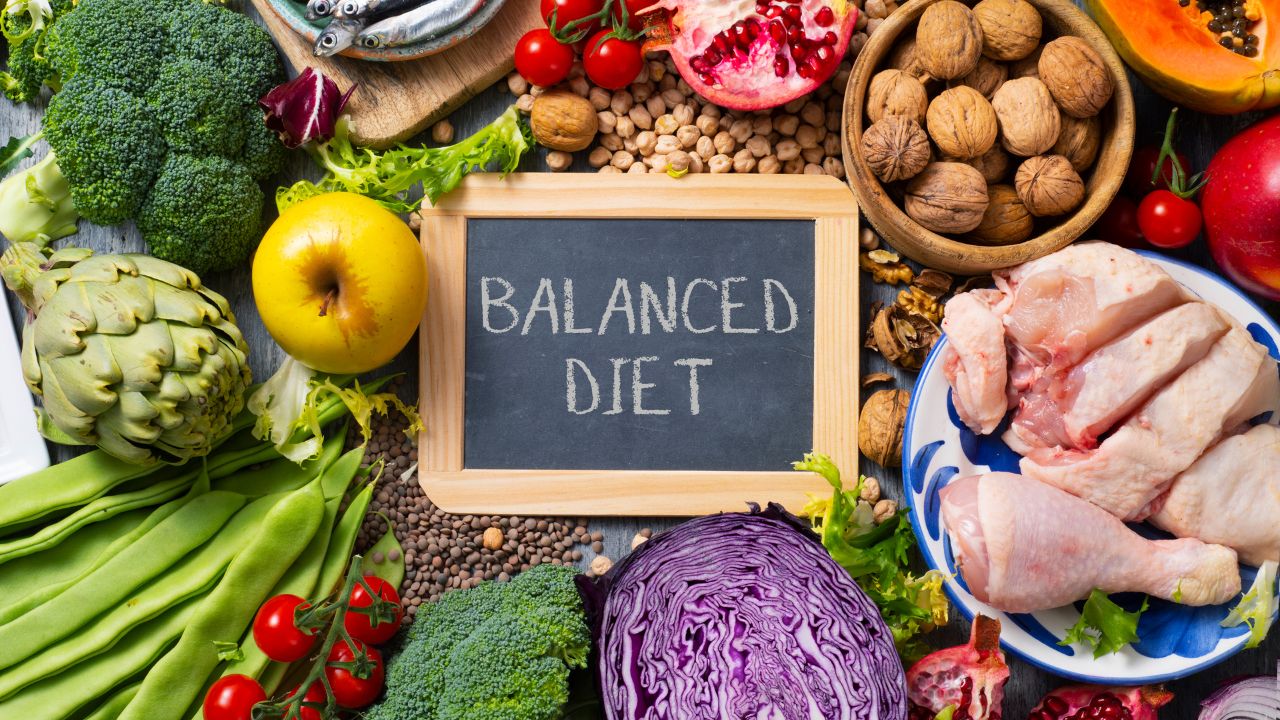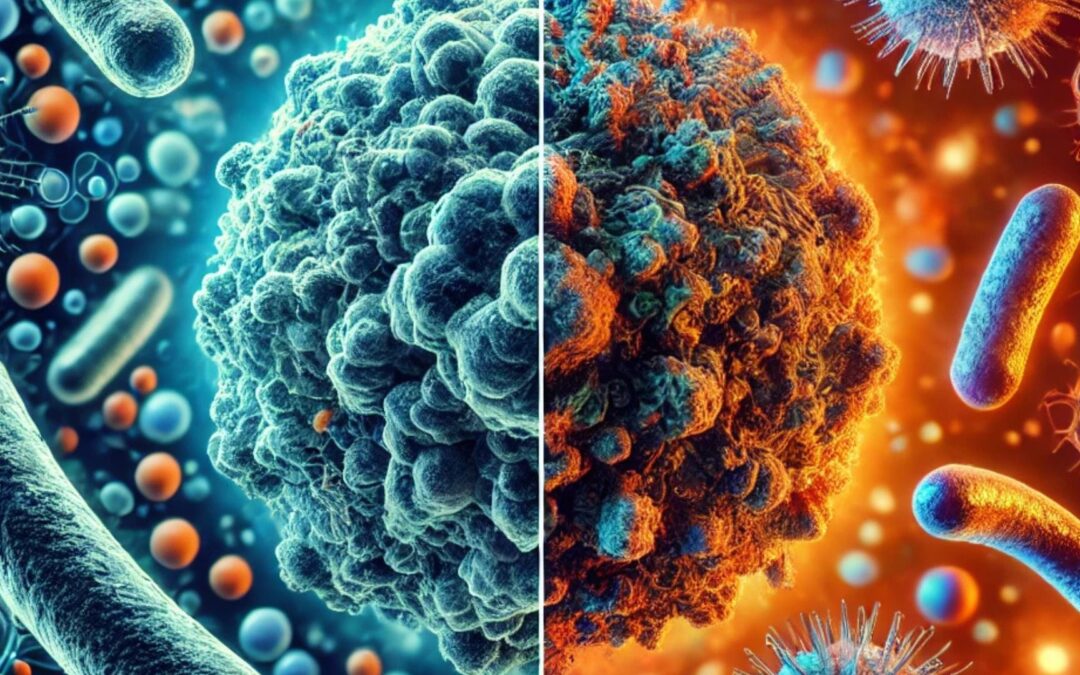Introduction
A balanced diet is essential for maintaining overall health and well-being. It provides the necessary nutrients for the body to function optimally, supports the immune system, and helps prevent chronic diseases. In today’s fast-paced world, it’s easy to fall into unhealthy eating habits, but understanding the benefits of a balanced diet can inspire us to make healthier choices. This article explores the components of a balanced diet, its numerous benefits, and offers practical tips for adopting a well-rounded eating plan.
Components of a Balanced Diet
Macronutrients
Macronutrients are nutrients that the body needs in large quantities to produce energy and maintain bodily functions. They include carbohydrates, proteins, and fats:
- Carbohydrates: Provide the body’s primary source of energy. They can be found in foods like whole grains, fruits, vegetables, and legumes.
- Proteins: Essential for growth, repair, and maintenance of body tissues. They can be found in foods like lean meats, poultry, fish, eggs, dairy products, and plant-based sources such as beans, lentils, and tofu.
- Fats: Necessary for absorbing fat-soluble vitamins, providing energy, and protecting vital organs. Healthy fats can be found in foods like avocados, nuts, seeds, and olive oil.
Micronutrients
Micronutrients are nutrients required in smaller quantities but are crucial for proper body functioning. They include vitamins and minerals:
- Vitamins: Organic compounds that support various body functions, such as immune system function, energy production, and blood clotting. Examples include vitamin A, B vitamins, vitamin C, vitamin D, vitamin E, and vitamin K.
- Minerals: Inorganic compounds that help maintain strong bones, support nerve function, and regulate muscle contractions. Examples include calcium, magnesium, potassium, sodium, and iron.
Fiber
Fiber is an essential component of a balanced diet that aids digestion and helps maintain healthy cholesterol levels. It can be found in foods like whole grains, fruits, vegetables, and legumes.
Water
Water is crucial for overall health, as it supports digestion, nutrient absorption, and waste elimination. Staying properly hydrated is an essential aspect of a balanced diet.
Benefits of a Balanced Diet
Weight Management
A balanced diet, combined with regular physical activity, helps maintain a healthy weight. Consuming the right balance of macronutrients and making healthier food choices can promote satiety, prevent overeating, and support weight loss efforts.
Enhanced Energy Levels
A balanced diet provides the body with the necessary nutrients for energy production. Consuming adequate carbohydrates, proteins, and fats ensures the body has the fuel it needs to sustain energy levels throughout the day.
Improved Immune System Function
A diet rich in essential nutrients, such as vitamins and minerals, supports a healthy immune system. Consuming adequate amounts of vitamin C, vitamin D, zinc, and other immune-boosting nutrients can help protect against illness and infection.
Prevention of Chronic Diseases
A balanced diet can help prevent chronic diseases, such as heart disease, diabetes, and certain types of cancer. Consuming a diet rich in fruits, vegetables, whole grains, lean proteins, and healthy fats can reduce the risk of these conditions by lowering blood pressure, improving cholesterol levels, and promoting healthy blood sugar levels.
Better Mental Health
A balanced diet can also support mental health and cognitive function. Consuming adequate amounts of omega-3 fatty acids, B vitamins, and other brain-boosting nutrients can help reduce the risk of depression, anxiety, and other mental health issues, as well as improve memory and cognitive performance.
Stronger Bones and Teeth
A diet rich in calcium, vitamin D, magnesium, and other essential nutrients helps maintain strong bones and teeth. Consuming adequate amounts of these nutrients can reduce the risk of developing conditions like osteoporosis and dental problems.
Better Digestion and Gut Health
A balanced diet that includes sufficient fiber and water intake supports healthy digestion and gut health. Consuming high-fiber foods like fruits, vegetables, whole grains, and legumes can help regulate bowel movements, prevent constipation, and promote the growth of beneficial gut bacteria.
Practical Tips for Adopting a Balanced Diet
Make Half Your Plate Fruits and Vegetables
Aim to fill half your plate with a variety of colorful fruits and vegetables at each meal. This can help ensure you consume adequate vitamins, minerals, and fiber for optimal health.
Opt for Whole Grains
Choose whole grains like brown rice, whole wheat bread, and quinoa over refined grains like white rice and white bread. Whole grains provide more fiber, vitamins, and minerals than their refined counterparts.
Choose Lean Protein Sources
Incorporate lean protein sources like poultry, fish, beans, lentils, and tofu into your diet. These options are lower in saturated fat and provide essential amino acids for maintaining muscle mass and supporting overall health.
Limit Added Sugars and Processed Foods
Cut back on added sugars and heavily processed foods, which can contribute to weight gain, inflammation, and chronic diseases. Opt for natural sweeteners like honey or maple syrup in moderation, and prioritize whole, unprocessed foods whenever possible.
Stay Hydrated
Drink plenty of water throughout the day to support digestion, nutrient absorption, and overall health. Aim for at least eight 8-ounce glasses of water daily, and consider increasing your intake during periods of increased physical activity or hot weather.
Practice Portion Control
Monitor your portion sizes to avoid overeating and to maintain a healthy weight. Use smaller plates, listen to your body’s hunger and fullness cues, and consider using a food diary to track your intake and ensure you’re consuming a balanced diet.
Plan Your Meals and Snacks
Planning your meals and snacks in advance can help you make healthier choices and avoid resorting to less nutritious options when you’re short on time or faced with cravings. Create a weekly meal plan and grocery list to ensure you have the ingredients you need to prepare balanced, nutritious meals.
Conclusion
A balanced diet is key to maintaining overall health and well-being. By consuming a variety of nutrient-dense foods, staying hydrated, and practicing portion control, you can support optimal body functioning, boost your immune system, and reduce the risk of chronic diseases. Adopting a balanced diet is not just about achieving short-term health goals, but rather about cultivating sustainable, long-term habits that promote a lifetime of wellness. Embrace the benefits of a balanced diet and enjoy improved physical and mental health, increased energy levels, and a greater sense of well-being.
Keywords
- Macronutrients: Nutrients required in large quantities to produce energy and maintain bodily functions, including carbohydrates, proteins, and fats.
- Carbohydrates: A macronutrient that provides the body’s primary source of energy, found in foods like whole grains, fruits, vegetables, and legumes.
- Proteins: A macronutrient essential for growth, repair, and maintenance of body tissues, found in foods like lean meats, poultry, fish, eggs, dairy products, and plant-based sources such as beans, lentils, and tofu.
- Fats: A macronutrient necessary for absorbing fat-soluble vitamins, providing energy, and protecting vital organs. Healthy fats can be found in foods like avocados, nuts, seeds, and olive oil.
- Micronutrients: Nutrients required in smaller quantities but are crucial for proper body functioning, including vitamins and minerals.
- Vitamins: Organic compounds that support various body functions, such as immune system function, energy production, and blood clotting. Examples include vitamin A, B vitamins, vitamin C, vitamin D, vitamin E, and vitamin K.
- Minerals: Inorganic compounds that help maintain strong bones, support nerve function, and regulate muscle contractions. Examples include calcium, magnesium, potassium, sodium, and iron.
- Fiber: An essential component of a balanced diet that aids digestion and helps maintain healthy cholesterol levels, found in foods like whole grains, fruits, vegetables, and legumes.
- Water: Crucial for overall health, as it supports digestion, nutrient absorption, and waste elimination.
- Weight Management: The process of maintaining a healthy weight through balanced nutrition and regular physical activity.
- Enhanced Energy Levels: Increased physical and mental energy resulting from consuming a balanced diet.
- Immune System Function: The ability of the body to defend against illnesses and infections, supported by consuming a diet rich in essential nutrients.
- Chronic Diseases: Long-term health conditions that can be prevented by consuming a balanced diet, including heart disease, diabetes, and certain types of cancer.
- Mental Health: The state of emotional, psychological, and social well-being, supported by consuming a diet rich in brain-boosting nutrients.
- Strong Bones and Teeth: The maintenance of healthy bones and teeth through consuming a diet rich in calcium, vitamin D, magnesium, and other essential nutrients.
- Digestion: The process of breaking down food in the body and extracting nutrients to support bodily functions.
- Gut Health: The health of the digestive system, supported by consuming a diet rich in fiber and water intake.
Takeaways
- A balanced diet is essential for maintaining overall health and well-being.
- Macronutrients, including carbohydrates, proteins, and fats, provide the body with energy and maintain bodily functions.
- Micronutrients, including vitamins and minerals, are crucial for proper body functioning.
- Fiber and water are essential components of a balanced diet that aid digestion and support overall health.
- Consuming a balanced diet can lead to weight management, enhanced energy levels, improved immune system function, prevention of chronic diseases, better mental health, stronger bones and teeth, and better digestion and gut health.
- Practical tips for adopting a balanced diet include making half your plate fruits and vegetables, opting for whole grains, choosing lean protein sources, limiting added sugars and processed foods, staying hydrated, practicing portion control, and planning your meals and snacks in advance.
- Adopting a balanced diet is about cultivating sustainable, long-term habits that promote a lifetime of wellness.












0 Comments
Trackbacks/Pingbacks